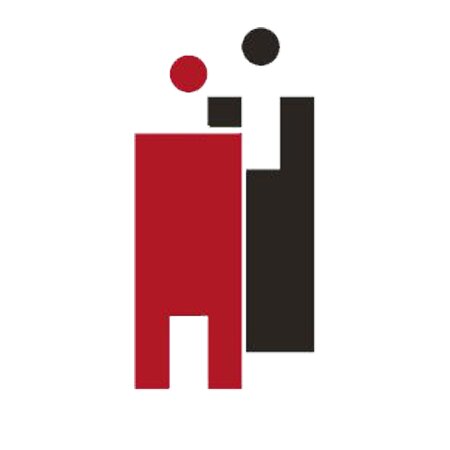Best Child Abuse Lawyers in Brie-Comte-Robert
Share your needs with us, get contacted by law firms.
Free. Takes 2 min.
Free Guide to Hiring a Family Lawyer
List of the best lawyers in Brie-Comte-Robert, France
About Child Abuse Law in Brie-Comte-Robert, France
Child abuse in Brie-Comte-Robert, as in the rest of France, is a serious offense that is strictly regulated by national laws. It encompasses a range of mistreatment, including physical, emotional, sexual abuse, and neglect. French law prioritizes the rights and protection of children, and various legal mechanisms are in place to ensure their safety and well-being. In Brie-Comte-Robert, local authorities, along with the national government, work actively to prevent and address cases of child abuse through legislation and community support.
Why You May Need a Lawyer
Engaging a lawyer experienced in child abuse cases in Brie-Comte-Robert can be crucial in several situations. You might need legal help if you are:
- A parent or guardian facing allegations of child abuse.
- A child or a representative of a child who has been a victim of abuse.
- Someone mandated by law (e.g., educators, healthcare professionals) to report suspected abuse.
- Involved in custody disputes where there are allegations of abuse.
- A witness to an act of child abuse and require guidance on your legal obligations and rights.
Local Laws Overview
The French legal framework governing child abuse comprises a network of laws designed to protect children and punish offenders. Key aspects include:
- Criminal Code: Defines and penalizes acts of abuse, including sexual violence, neglect, and physical harm.
- Child Protection Law: Supports measures for the protection and welfare of at-risk children.
- Mandatory Reporting: Certain professionals are legally required to report suspected abuse to the authorities.
- Judicial Proceedings: Procedures for handling cases involving minors are calibrated to prioritize their welfare and understanding.
Frequently Asked Questions
What constitutes child abuse in Brie-Comte-Robert?
Child abuse includes any physical, emotional, or sexual mistreatment or neglect of a child. French law identifies and penalizes a comprehensive array of abusive actions to safeguard children's wellbeing.
What should I do if I suspect a child is being abused?
You are encouraged to report your suspicions to local authorities or social services. Specific professionals are legally obligated to report such suspicions.
How are child abuse cases investigated in Brie-Comte-Robert?
Once a report is made, authorities may involve local law enforcement, child protective services, and healthcare professionals to investigate and assess the situation.
Can I remain anonymous when reporting child abuse?
Yes, reports can typically be made anonymously, ensuring your identity remains confidential while prompting necessary intervention.
What happens to a child involved in an abuse case?
The child's safety is the top priority. Authorities may place the child in protective care and ensure necessary medical and psychological support is provided.
What legal penalties apply to child abuse perpetrators?
Penalties vary based on the severity of the offense, ranging from fines to imprisonment. Severe cases can result in substantial prison sentences.
Are there support services for victims of child abuse?
Yes, various local and national organizations provide counseling, medical services, and legal assistance to victims and their families.
Can a child testify in abuse cases?
Yes, but procedures ensure the process is child-sensitive to minimize trauma. Testimonies can be given via video link or with special arrangements.
Is financial assistance available for families affected by child abuse?
Certain organizations and government bodies may offer financial aid to help cover medical or legal costs related to child abuse cases.
What are the roles of social services in child abuse cases?
Social services are crucial in assessing a child's needs, providing necessary support, and coordinating with legal systems to ensure the child’s protection and welfare.
Additional Resources
If you need further assistance or information, the following resources can be invaluable:
- Brie-Comte-Robert Child Protection Services: Local services providing immediate intervention and support.
- French National Child Protection Helpline: A toll-free service offering advice and support.
- Local law enforcement: For immediate emergencies or to report a crime.
- Non-Governmental Organizations (NGOs): Numerous NGOs work within France to support victims and educate communities on child protection.
Next Steps
If you require legal assistance with a child abuse issue in Brie-Comte-Robert, consider the following steps:
- Contact a lawyer specializing in child welfare and family law for professional legal advice tailored to your situation.
- Reach out to local child protection services for immediate support and guidance.
- Document any evidence or observations pertinent to the case and present it to the appropriate bodies.
- Engage with support networks and counseling services to ensure both the child’s and your welfare during the legal process.
Lawzana helps you find the best lawyers and law firms in Brie-Comte-Robert through a curated and pre-screened list of qualified legal professionals. Our platform offers rankings and detailed profiles of attorneys and law firms, allowing you to compare based on practice areas, including Child Abuse, experience, and client feedback.
Each profile includes a description of the firm's areas of practice, client reviews, team members and partners, year of establishment, spoken languages, office locations, contact information, social media presence, and any published articles or resources. Most firms on our platform speak English and are experienced in both local and international legal matters.
Get a quote from top-rated law firms in Brie-Comte-Robert, France — quickly, securely, and without unnecessary hassle.
Disclaimer:
The information provided on this page is for general informational purposes only and does not constitute legal advice. While we strive to ensure the accuracy and relevance of the content, legal information may change over time, and interpretations of the law can vary. You should always consult with a qualified legal professional for advice specific to your situation.
We disclaim all liability for actions taken or not taken based on the content of this page. If you believe any information is incorrect or outdated, please contact us, and we will review and update it where appropriate.








